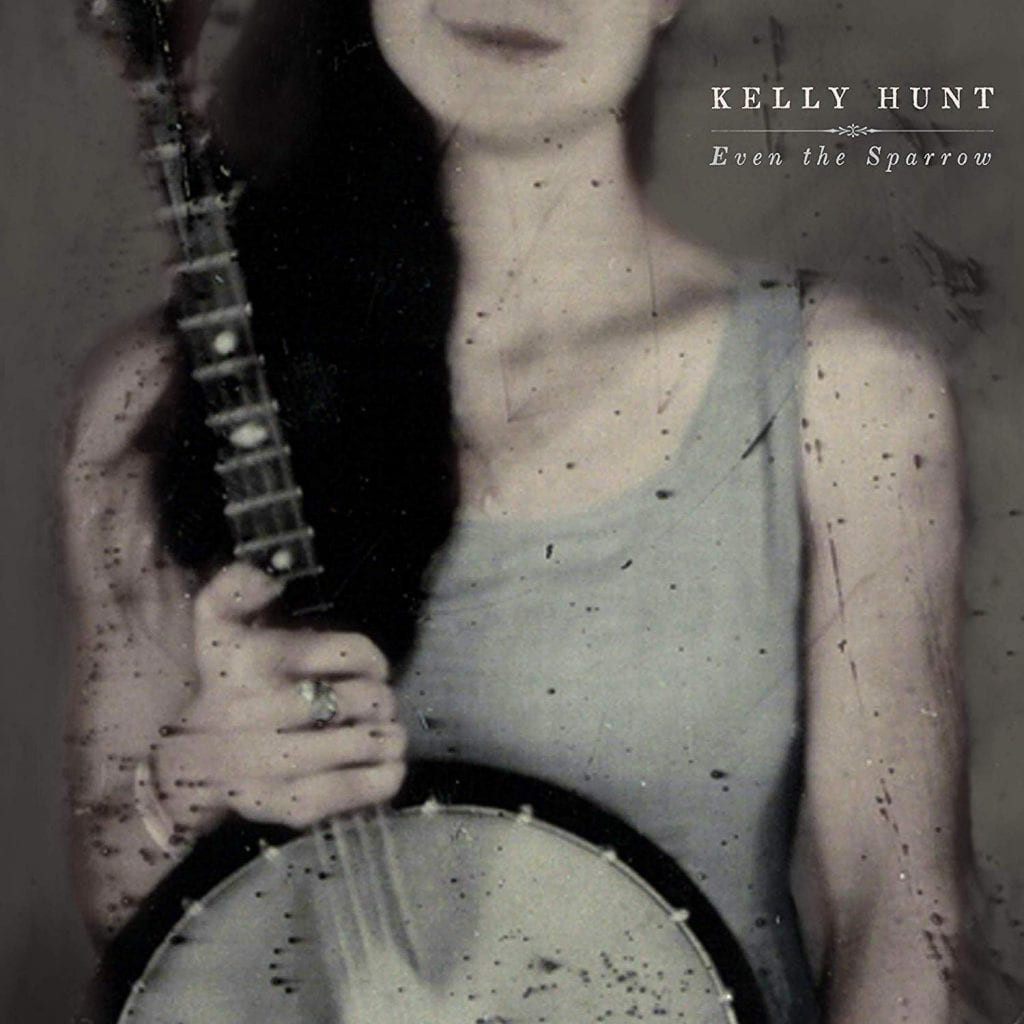Kelly Hunt Creates Compelling Stories on Debut ‘Even the Sparrow’

EDITOR’S NOTE: In December, we like to take a look back at albums we didn’t get around to reviewing earlier in the year. Even the Sparrow was released in May.
Even as you relax into the sounds of Kansas City singer-songwriter Kelly Hunt’s understated banjo picking and expressive singing, your ears can’t help but perk up at the stories she tells in each and every song.
She writes eloquently about universal themes like love and loss, leaving and coming home, creating characters to put a face on those themes and weaving settings rich in history, nature, and experience. Her stories — gut-punching in their truthfulness and beautiful in their imagery, often simultaneously — make her debut album, Even the Sparrow, the musical equivalent of a book you can’t put down, one you’ll want to revisit again and again to catch every nuance and turn of phrase.
The opening song, “Across the Great Divide,” grabs hold immediately, a hushed reflection on every phase of an unbidden breakup: the good times, the end, the wistful aftermath. After “we were battered by a storm too rough to ride / and we washed ashore on opposite sides,” Hunt turns a lover’s insistence of “You will hate me soon” around, asserting “I have waited for that moment in longing and in dread / but I find only the converse to be true / for every day expands my love for you.” The song doesn’t have a chorus, and it doesn’t need one — the verses drive the story forward and the message is powerfully conveyed in the longing in Hunt’s voice.
Hunt uses her signature antique tenor banjo for both simple strums and percussion that punctuate “Fingernail Moon,” a vivid description of an overnight drive with a motivation and destination that go unstated but with an undeniable pull. Stas’ Heaney’s fiddle weaves throughout, mimicking the trance of the road and creating magic under that moonlight.
“Oh Brother Where Art Thou?” makes that question literal. As Hunt outlines a lifetime of sibling resentment as it plays out through a farmworking family, her voice takes a hard edge that makes clear the answer isn’t going to be good.
The album ends on “Gloryland,” a delightful singalong that gives hope that all the characters in Hunt’s fine songs will be all right, by and by.



